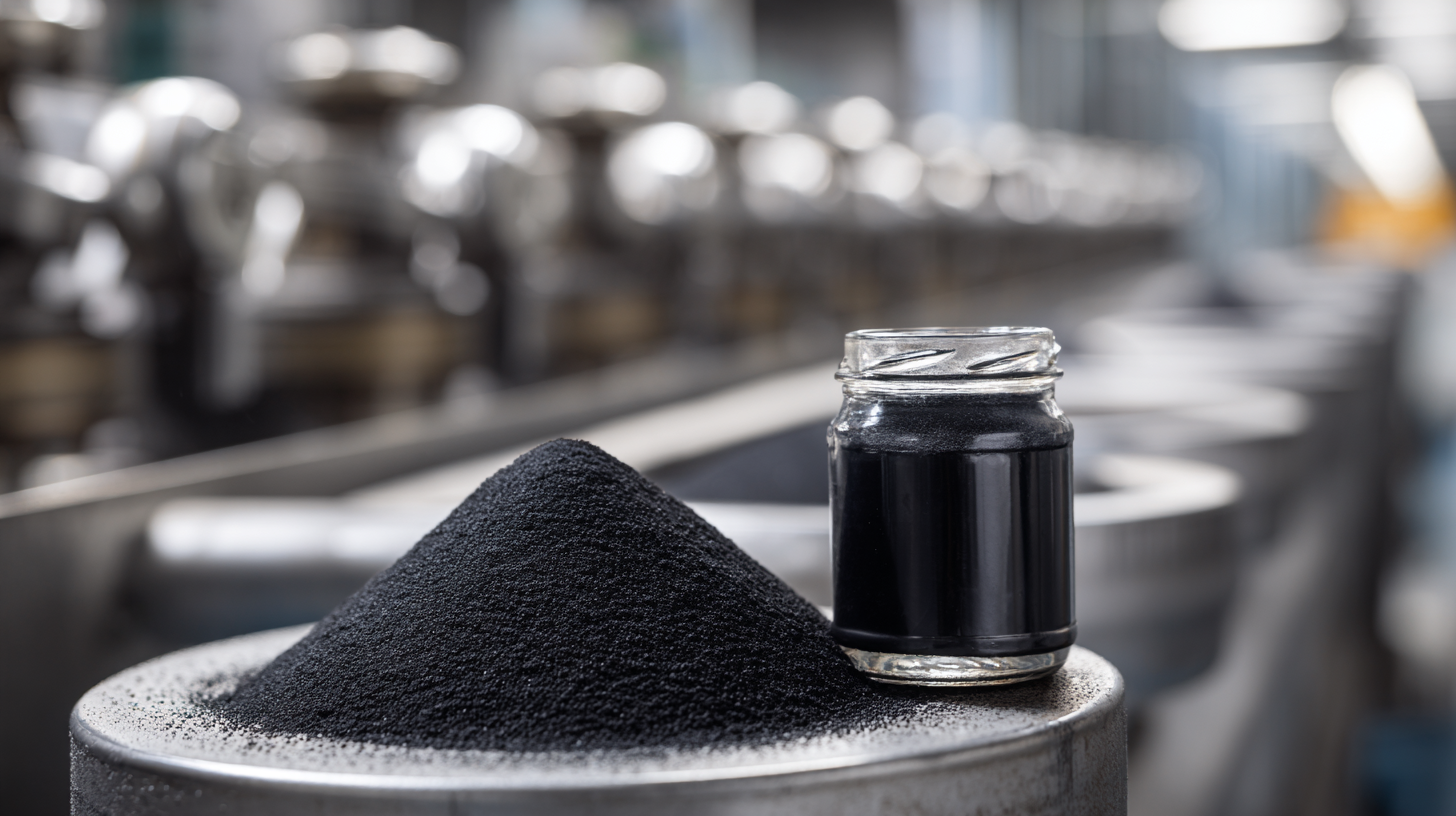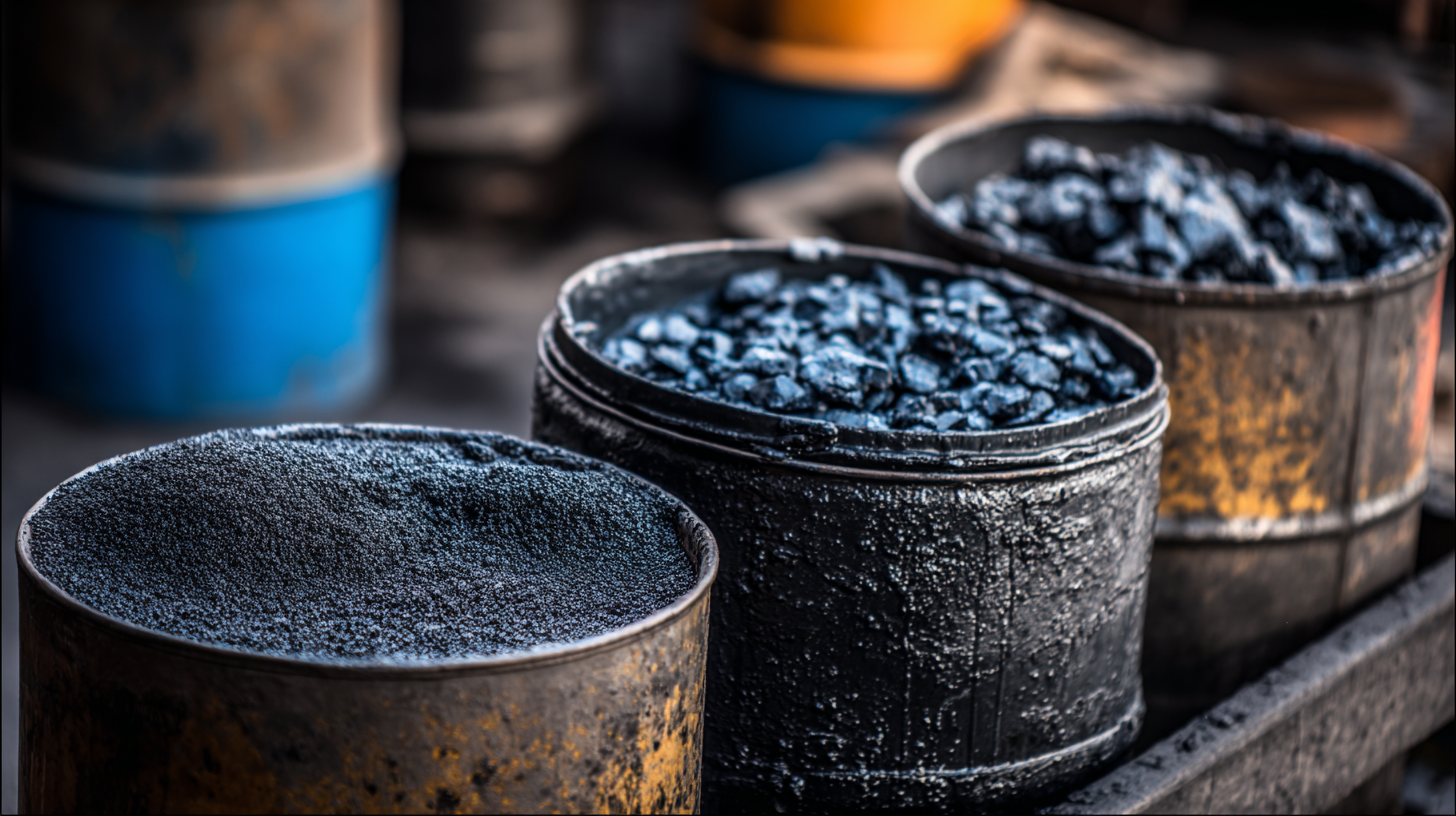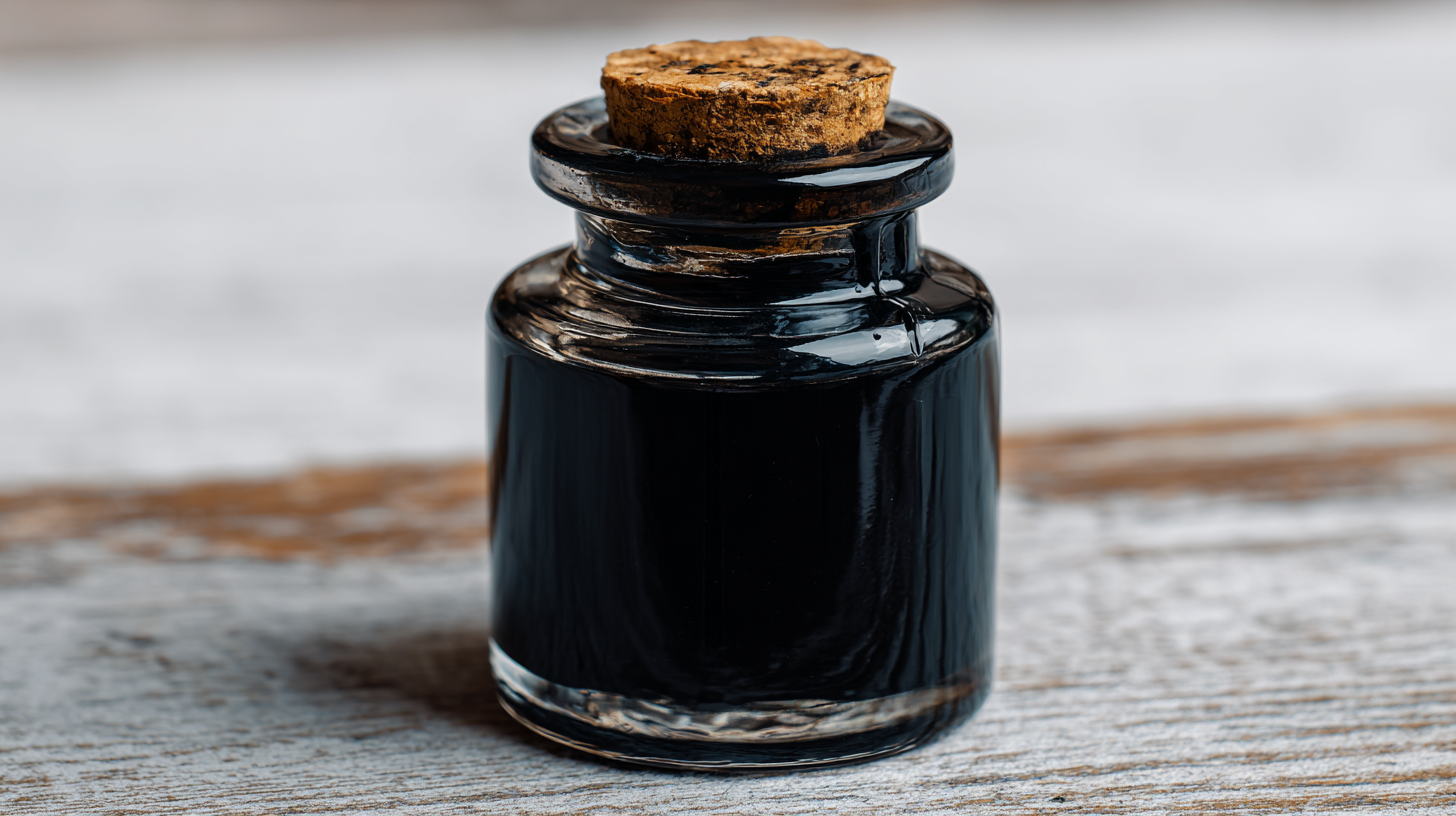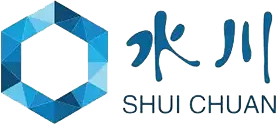In the ever-evolving landscape of global sourcing, identifying the best Liquid Sulphur Black manufacturers is crucial for businesses aiming to enhance their product offerings while ensuring compliance with various import and export certifications. Liquid Sulphur Black, a vital component in various industries, from textiles to agriculture, demands a keen eye for quality and reliability. As the market grows increasingly competitive, it becomes essential for companies to navigate through the multitude of suppliers and pinpoint those who not only meet stringent industry standards but also uphold the highest levels of product integrity. This blog will delve into the key factors to consider when evaluating Liquid Sulphur Black manufacturers, including their certifications, production capabilities, and market reputation, providing a comprehensive guide for businesses looking to streamline their sourcing process effectively.

When sourcing liquid sulphur black for various applications, it's crucial to identify manufacturers that meet specific industry standards and requirements. Key characteristics to look for include the manufacturer’s production capacity, quality control measures, and compliance with international regulations. According to a report by MarketsandMarkets, the global liquid dye market, which includes liquid sulphur black, is expected to reach USD 4.1 billion by 2025, indicating a growing demand for high-quality products.
Manufacturers should have a sufficient production capacity to meet fluctuating market needs, ensuring a consistent supply chain.
Additionally, quality control is paramount. Reputable manufacturers typically adhere to ISO 9001 certification, which signifies a commitment to quality management practices. A report from Research and Markets highlights that quality assurance in dyes and pigments can reduce production waste by up to 30%, making it not only an ethical but also an economically viable choice. Furthermore, compliance with REACH (Registration, Evaluation, Authorisation and Restriction of Chemicals) regulations is essential for companies involved in global sourcing, ensuring that the products are safe for both consumers and the environment. By focusing on these characteristics, businesses can effectively streamline their procurement process while securing reliable partners in the liquid sulphur black manufacturing market.
When sourcing liquid sulphur black, understanding industry standards and certifications is crucial to ensuring quality assurance. Many manufacturers in the industry adhere to standards set by organizations such as ISO (International Organization for Standardization) and REACH (Registration, Evaluation, Authorization, and Restriction of Chemicals). For instance, according to a 2022 report by Market Research Future, over 60% of leading manufacturers have achieved ISO 9001 certification, indicating their commitment to quality management systems.
Tips: Always check for certifications like ISO 14001 for environmental management and OHSAS 18001 for occupational health and safety. These certifications not only reflect a manufacturer's adherence to quality but also their responsibility toward sustainable practices.
Additionally, compliance with regulations such as the ASTM (American Society for Testing and Materials) standards can provide insights into the quality of the products. Research shows that suppliers that comply with these standards often report a reduced rate of defects, enhancing the reliability of their offerings. By focusing on manufacturers that prioritize these certifications, companies can better navigate their sourcing strategies and mitigate risks.
Tips: Consider ongoing audits and third-party assessments as essential elements in evaluating manufacturer credibility and quality, ensuring consistency in production and adherence to international safety standards.
When sourcing liquid sulphur black, evaluating the production capacity of potential manufacturers is crucial. A manufacturer’s ability to meet your order quantity consistently can significantly impact your supply chain. Look for companies that provide clear information about their production capabilities, including their maximum output per month and any relevant certifications that demonstrate they adhere to industry standards. Additionally, consider their ability to scale production to accommodate fluctuations in demand, ensuring that your needs are met even during peak periods.
Equally important is the efficiency of the supply chain. Analyze the logistics and distribution network employed by the manufacturers. A robust supply chain minimizes lead times and reduces delays, which is essential for maintaining a smooth production process. Assess the locations of their production facilities and warehouses, as proximity can enhance shipping times and lower transportation costs. Furthermore, inquire about their inventory management practices, which can help ensure that raw materials are readily available for uninterrupted production. By focusing on these aspects, you can identify manufacturers that not only meet your volume needs but also contribute to a seamless sourcing experience.

When looking for reliable liquid sulphur black manufacturers, customer reviews and case studies serve as powerful tools for assessing potential suppliers. Customer reviews provide insight into the experiences of those who have previously worked with a manufacturer, highlighting strengths such as product quality, delivery timelines, and customer service. Positive feedback can indicate a trustworthy supplier, while consistent negative reviews may signal potential issues that need careful consideration. It's essential to delve into detailed comments and ratings rather than relying solely on overall scores, as these can reveal specific patterns in a manufacturer’s performance.

Case studies further enhance your evaluation by offering concrete evidence of a manufacturer's capabilities and successful projects. They often showcase how suppliers have addressed challenges faced by clients in similar industries, demonstrating their problem-solving skills and adaptability. By analyzing these real-world scenarios, businesses can gauge the effectiveness of a manufacturer in meeting diverse needs and expectations. This two-pronged approach to vetting manufacturers—leveraging both customer feedback and comprehensive case studies—ensures that global sourcing decisions are informed, reducing the risks associated with selecting the wrong supplier.
When looking to source liquid sulphur black globally, understanding the cost structures and payment terms of potential manufacturers is crucial. Manufacturers may have varying pricing strategies influenced by factors such as production scale, raw material costs, and overhead expenses. Exploring these aspects will provide insight into whether a manufacturer can offer competitive pricing without compromising on quality.
Tip: Always request a detailed breakdown of costs from manufacturers. This should include expenses related to production, packaging, and shipping. A transparent cost structure not only indicates a reliable supplier but also helps in making informed decisions regarding your budget.
Additionally, payment terms can significantly impact your cash flow and sourcing strategy. Some manufacturers may require upfront payments, while others might offer credit or installment plans. Understanding these terms will aid in negotiating a deal that aligns with your financial capabilities.
Tip: Ask about flexibility in payment options and any discounts for bulk purchases. Establishing a good rapport with manufacturers may also lead to better terms as your business relationship grows.
